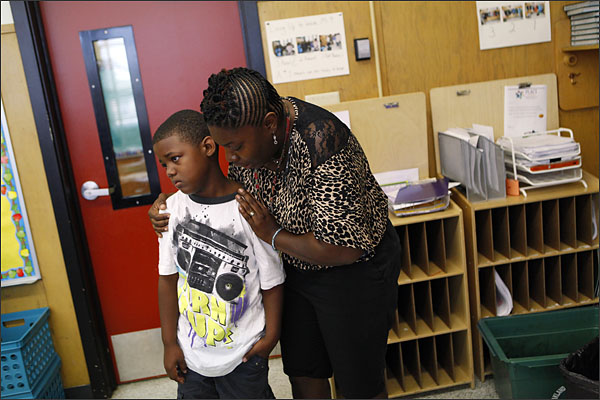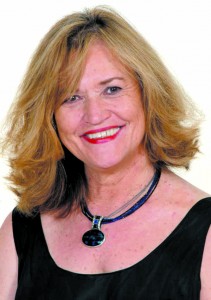Black Futures Month: The Need for Black Teachers
Feb 14, 2015

By Kimberly Mayfield-Lynch and Kitty Kelly Epstein
American schools need Black teachers. There is considerable documented evidence that Black students do better when they have more African-American teachers.
White and Latino and Asian kids also benefit from learning to respect the leadership and wisdom of the Black adults who teach them. Teachers of all ethnicities learn cultural competence by working with each other.
Furthermore, because teaching is a stable job with benefits, economic justice demands that it be available to local residents whose communities suffer from the highest unemployment and the lowest income levels.
American schools also need Latino, Asian, and indigenous teachers, and we will be discussing the specific needs and barriers that face these communities in a follow-up column. Seventy-three percent of students and only 29 percent of teachers come from non-Anglo groups

The educational system makes it difficult for Black and other non-Anglo adults to enter the field.
Policy makers know very well that standardized tests have always operated to the detriment of people of color, ever since they were first created by Eugenics advocate Lewis Terman.
In fact the National Teacher Exam (NTE) was specifically used in Southern states to keep Black teachers out of the classroom in the wake of desegregation (*See reference below) In quiet circles and backrooms the test was referred to as the Negro Teacher Eliminator. The current version of the NTE is the CSET (California Subject Matter Exam Test).
State and federal governments have added several other forms of standardized testing that are required of every prospective teacher.
In addition, new teachers are generally required to carry out unpaid student teaching, and this is an overwhelming financial burden for many Black families, given the racial wealth gap.
Oakland has historically done more than most districts to remedy this problem and break down these barriers.
In the early 1990s, the school board led by President Sylvester Hodges frequently asked staff for reports on hiring by ethnicity. In the late 1990s, the district created the Oakland Partnership Program, which recruited, supported and prepared many of the district’s best teacher-leaders and administrators, including Keith Brown who now serves on the OEA Board; Mia Settles, Kyla Johnson, and many others in the district administration and schools.

A few years later, the Effective Teachers for Oakland Task Force, organized by then Mayor Ron Dellums and led by Dr. Mayfield-Lynch, recommended the creation of programs to diversify the teaching force.
The district accepted this recommendation, and hired Dr. Rachelle Rogers-Ard to lead Teach Tomorrow in Oakland (TTO), a program that has become a national beacon for effective teacher recruitment and retention.
Education Week and the Center for American Progress have both extolled the diversity and quality of the program.
Four elements make the program especially effective at recruiting and retaining diverse teachers.
First, because the programs recruits local residents and the support is intensive, three-quarters of TTO teachers have been retained over five years. This is exceptional, given the national statistic that half of all teachers quit within five years.
Second, an element of the selection process involves seeing the prospective teacher work with young people.
Third, the support system is intimate and culturally competent. People who need help with finishing required tests get both hand-holding, and rigorous instruction The new teachers join as cohorts, are celebrated for their work and have specific professional development targeted to their needs.
Finally, the program has the beautiful mix of connection and autonomy, which makes school district programs work. Like the African-American Male Achievement Project, TTO is part of the district, but it also has some autonomy and self-direction.
The small cost of running TTO is more than compensated by the fact that it eliminates some of the financial and programmatic cost of constant teacher turnover.
(*Wayne Urban in “Essays in Twentieth Century Southern Education: Exceptionalism and Its Limits“ (1998) p. 188).
Dr. Kimberly Mayfield-Lynch is chair of the Education Department at Holy Names University; a former Oakland teacher; and the parent of an Oakland student.
Dr. Kitty Kelly Epstein is host of the radio program Education Today on KPFA FM and author of “A Different View of Urban Schools: Civil Rights, Critical Race Theory and Unexplored Realities” (2012) Peter Lang.